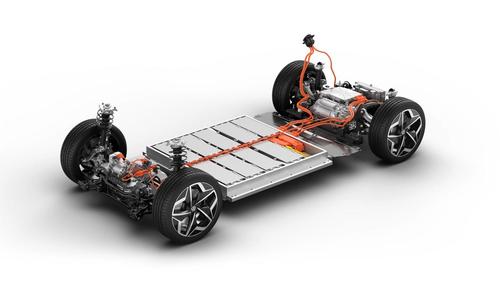The price of a lithium-ion battery pack used to power an electric vehicle has plunged 89% in the last decade. It could drop even further in the next couple of years, allowing automakers to manufacture mass-market electric vehicles for the same cost as ones that run on petrol.
About a decade ago, the cost of a lithium-ion battery pack was around $1,110 per kilowatt-hour. That figure now stands at roughly $137 per kilowatt-hour, and likely to plunge to about $100 per kilowatt-hour in the next couple of years, said Fast Company, citing a new clean energy report from Bloomberg.
"If you look at the remarkable cost reduction over the last decade, and what's expected over the next few years, and pair that with escalating policy measures in Europe and expected in the U.S. and China, then you have this very powerful combination of factors to underpin EV uptake, starting now," said the head of clean power at Bloomberg New Energy Finance, Logan Goldie-Scot.
The report cited some Chinese battery packs already cost around the $100 per kilowatt-hour mark - the line in the sand that will allow automakers to make mass-market electric vehicles while turning a profit.
"They will continue and accelerate over the next few years. Within four years, major automakers should be able to produce and sell mass-market electric vehicles at the same price and with the same margin as internal combustion engine equivalents," said Goldie-Scot.
UBS's Swiss investment bank published a note earlier this year that said Volkswagen could be the first global automaker to make money selling electric vehicles with profits materializing as early as 2022.
Even though Tesla is the most desired electric vehicle at the moment, it could come under pressure from strong German competition.
"In a head-to-head comparison, consumers would still prefer an electric Audi, BMW or Mercedes over a Tesla. The key issue is that these brands still lack competitive products, which could change in 2021," UBS said.
While gamma squeezes have pushed the market cap of Tesla to $629 billion, the prospects of cheaper batteries and mass-market electric vehicles by mainstream automakers may be a headwind for the company.
In reference to Tesla's stock, Isaac Newton once said: "What goes up must come down."
ADVERTISEMENT
By Zerohedge.com
More Top Reads From Oilprice.com:
- IHS Markit: Oil Demand Won't Fully Recover Until 2022
- 3 Reasons Why Oil Could See An End Of Year Rally
- The Very Real Possibility Of Peak Oil Supply





















There is also the need for multi-trillion dollar investments to expand the global electricity generation capacity in order to accommodate the extra electricity needed to recharge the millions of EVs that will eventually be on the roads. How could such expansion be sourced: nuclear, hydrocarbons or solar?
Moreover, growth in EV sales thus far has been supported by significant government subsidies. Sales could easily slump once the subsidies are withdrawn.
The race between EVs and internal combustion engines (ICEs) for market share and dominance will continue unabated throughout the 21st century and far beyond. Still, EVs are going to face an uphill battle against ICEs. And while they are bound to get a share of the global transport system, they will never prevail over ICEs. As a result, ICEs will continue to be the dominant means of transport well into the future.
Dr Mamdouh G Salameh
International Oil Economist
Visiting Professor of Energy Economics at ESCP Europe Business School, London
1) Not enough raw materials to build all those batteries
2) Electricity supply constraints
3) Range and time to charge.
Since, BEV's run 4 times as efficient as gasoline cars, the amount of energy needed to replace all gas vehicles is about 30% increase in todays electricity production. Taken over the next decade or two this is miniscule and easily accomplished, while still shutting down all coal plants and then following this up by ending gas fired plants as well. Some gas plants may run for another 20 to 30 years, but by 2025, few if any fossil fuel plants will be built as the economic advantages of renewables continue to take market share and battery storage expands rapidly, as well as, new disruptive techs encroach on the electricity markets, such as V2G and V2H.
In Europe, over 10% of cars sold were EV's the past few months, in China, just about 10%. US does lag due to lower gasoline prices and preference for large SUV's / pickups, but that will change as more of these vehicles hit the market in the next 10 years.
We will do this easily, at 1/2 the cost of what it costs to maintain and update the existing plants as they age and retire due to dropping prices for all renewable and clean storage solutions. The global economic windfall from this energy / transportation paradigm shift will drive global growth thru the 21st century.
Yes it will mean trillions spent, but much less than the cost of fossil fuels and then we also save the planet and improve health for all citizens saving hundreds of billions annually.
We save trillions spent today shipping, drilling, building plants that burn fossil fuels, all of the revenues which go to a few countries at the cost of all others. Wind and sunshine are available to all nations and this will end the economic advantages of the few and force their govt's to either adapt and modernize or watch as their citizens suffer under autocratic control.